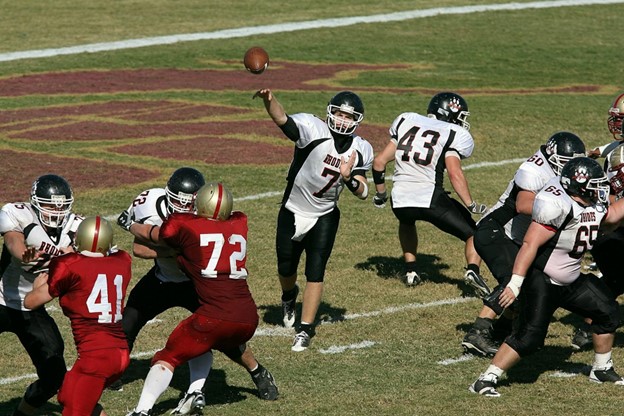
When it comes to American football, no position commands more attention, scrutiny, or debate than that of the quarterback. They are the leaders, the playmakers, and, often, the face of the franchise. In many ways, the success and failure of a team hinge on the shoulders of its quarterback. But how did this position become so pivotal, and what characteristics make a quarterback truly great?
The Evolution of the Quarterback Position
The role of the quarterback has dramatically evolved over the decades. Initially, the quarterback was primarily a game manager—handing off the ball to running backs and executing simple passing plays.
- Early Days: In the early days of the NFL, quarterbacks were largely considered facilitators. They didn’t throw often and were rarely the stars of the show.
- Rise of the Passing Game: Over time, football strategy shifted towards a more passing-oriented game. This transformation became especially pronounced in the 1970s and ’80s when offensive schemes started to exploit the aerial attack.
- Modern Era: Today’s quarterbacks are expected to be dual threats—capable of making pinpoint throws and eluding defenders with their legs. Think of players like Patrick Mahomes and Josh Allen. They embody the modern quarterback, blending traditional passing skills with athleticism and mobility.
Key Traits of a Successful Quarterback
Success at the quarterback position isn’t just about physical abilities; it’s a mixture of mental acuity, leadership qualities, and perseverance. Here are the key traits that define a successful quarterback:
- Leadership: A quarterback must inspire and command respect from teammates. Being a leader in the locker room and on the field is non-negotiable.
- Decision-Making: Quick, smart decisions are critical. With defenders closing in, a quarterback often has less than three seconds to make a play.
- Accuracy: Pinpoint accuracy can turn an average player into a superstar. The best quarterbacks can thread the needle, delivering the ball precisely where it needs to be.
- Work Ethic: The most successful quarterbacks spend countless hours studying film and honing their craft.
- Composure Under Pressure: Facing intense scrutiny and high-stakes situations, a great quarterback remains calm and focused.
Examples of Quarterback Greatness
Some quarterbacks have set the benchmark for greatness, becoming the gold standard against which others are measured:
- Tom Brady: Often dubbed the G.O.A.T., Brady’s career longevity and success with multiple Super Bowls highlight his unparalleled work ethic and determination.
- Peyton Manning: Known for his incredible football IQ and preparation, Manning was essentially a coach on the field.
- Joe Montana: His poise and ability to perform in clutch situations made him legendary, earning the nickname “Joe Cool.”
Evaluating Quarterbacks in the Modern NFL
The way teams evaluate quarterbacks has also evolved, becoming an intricate science. Scouts and analysts look at numerous factors beyond college stats:
- Physical Traits: Arm strength, size, and mobility are scrutinized.
- Mental Processing: How quickly a quarterback can read defenses and go through progressions is critical.
- Character & Leadership: Teams conduct exhaustive interviews and background checks to ensure a player has the mental makeup to lead an NFL team.
- Past Performance vs. Potential: Balancing past college performance with future potential is tricky. Some players who thrived in college struggle in the NFL, and vice-versa.
Future Trends and The Role of Analytics
The future of the quarterback position will likely be influenced by continued advancements in analytics and technology.
- Analytics Impact: Teams now use advanced stats and models to predict a quarterback’s success in the NFL. This includes analyzing high-pressure throws, mistake frequency, and performance in different game situations.
- Training Technology: Innovations in training software and virtual reality are helping quarterbacks improve their game like never before.
For fans keeping an eye on FanDuel lines, understanding these nuances can provide a deeper insight into why certain players and teams are favored, especially when considering starting quarterbacks.
Conclusion
The quarterback position is undoubtedly the most critical in the NFL. From the evolution of the role, through the traits that define greatness, to the latest methods of evaluation, every aspect underscores its significance. As the NFL continues to evolve, so too will the demands and expectations placed on quarterbacks. What remains constant, however, is the critical role they play in leading their teams to victory.




